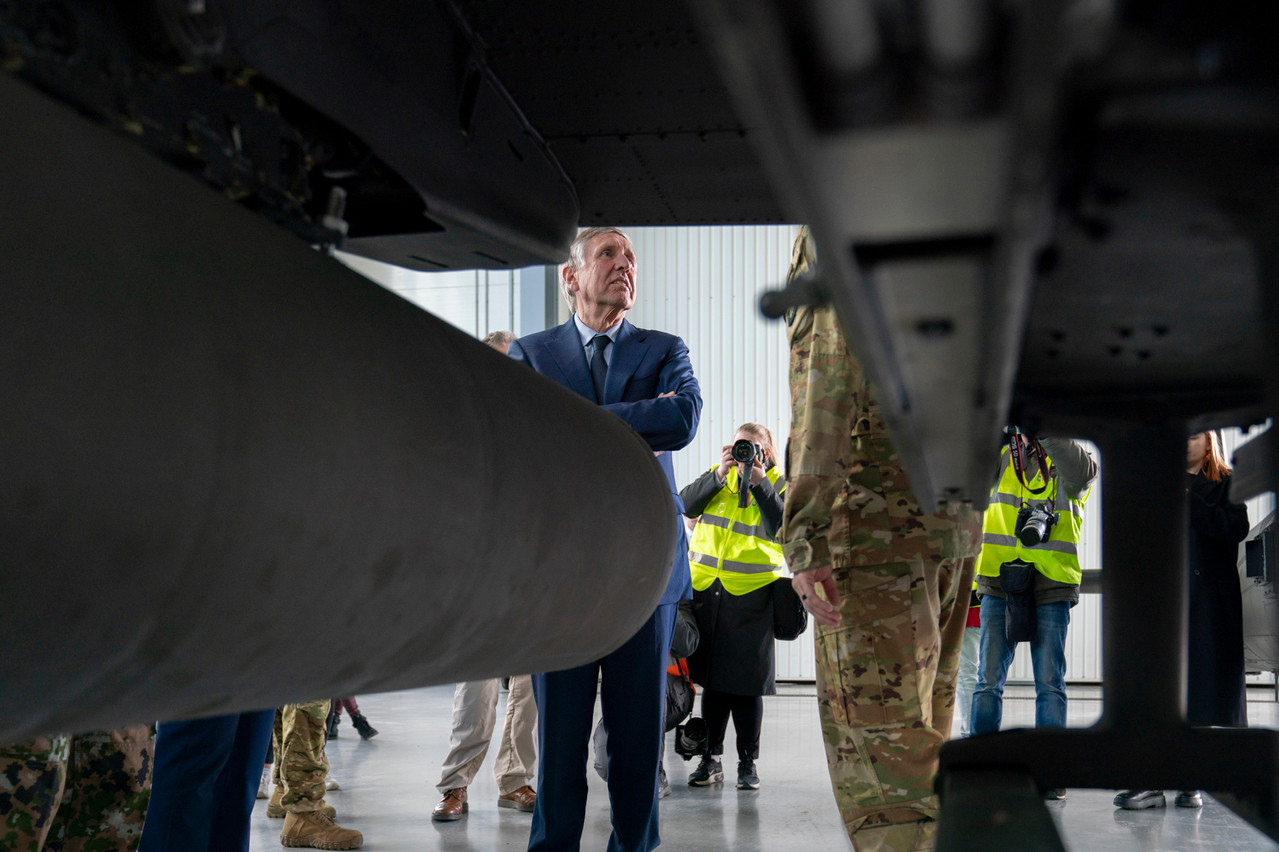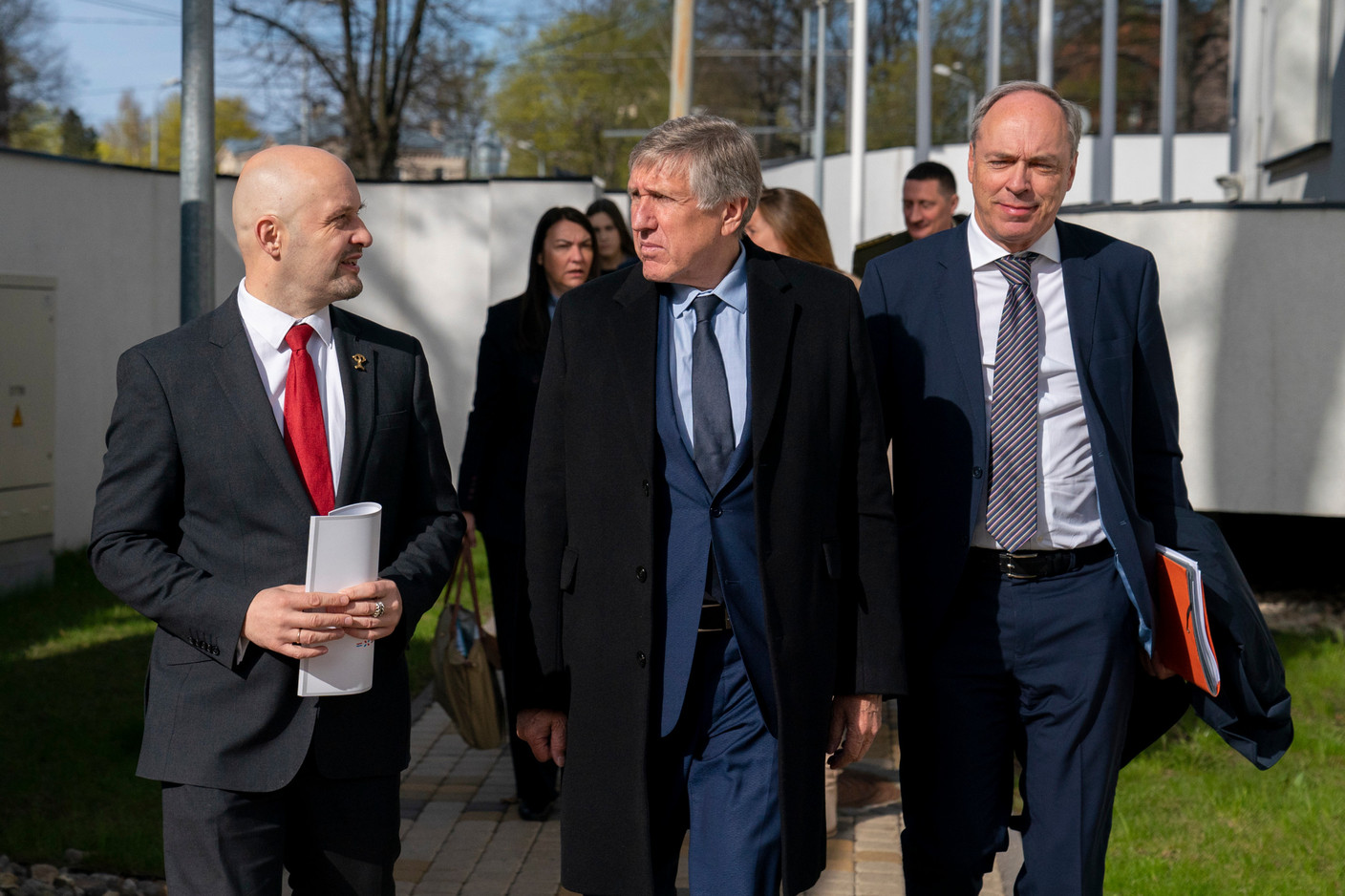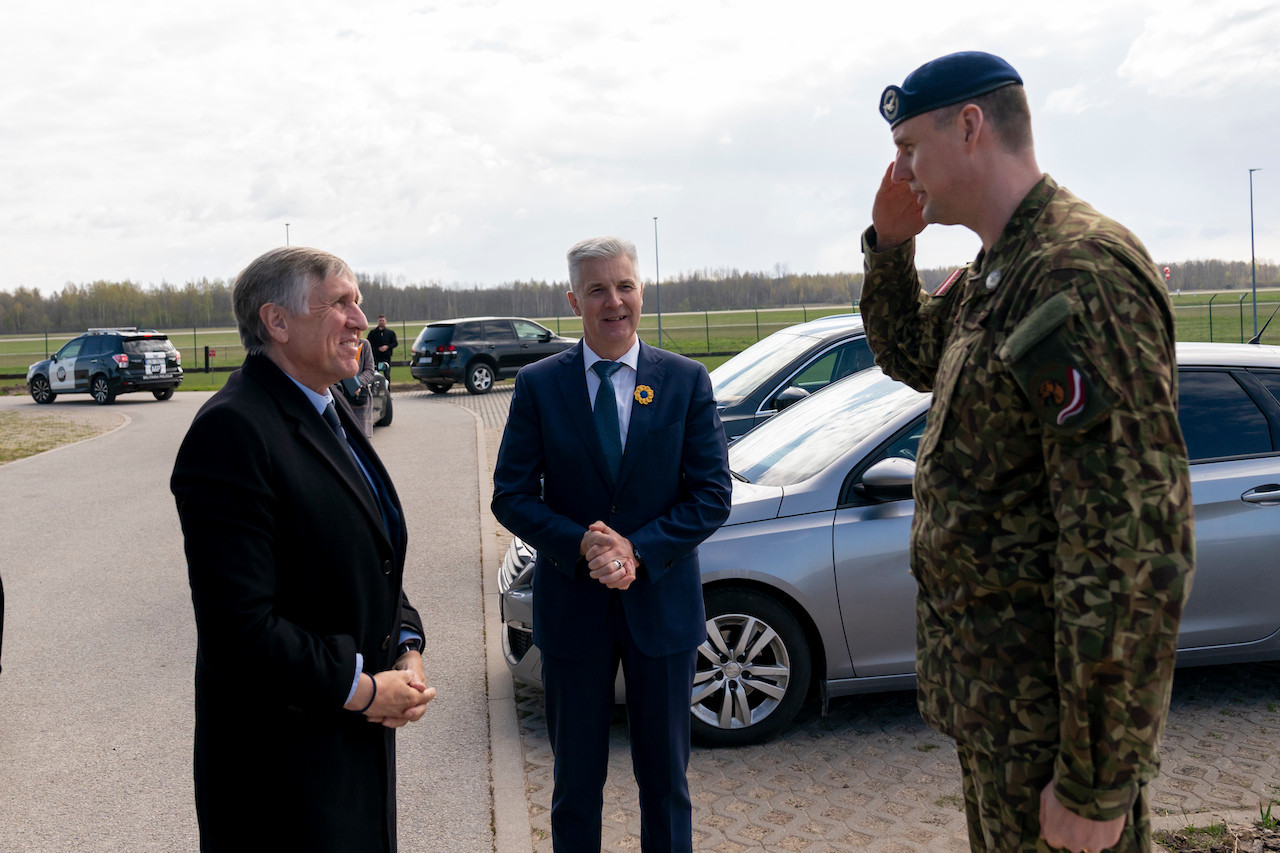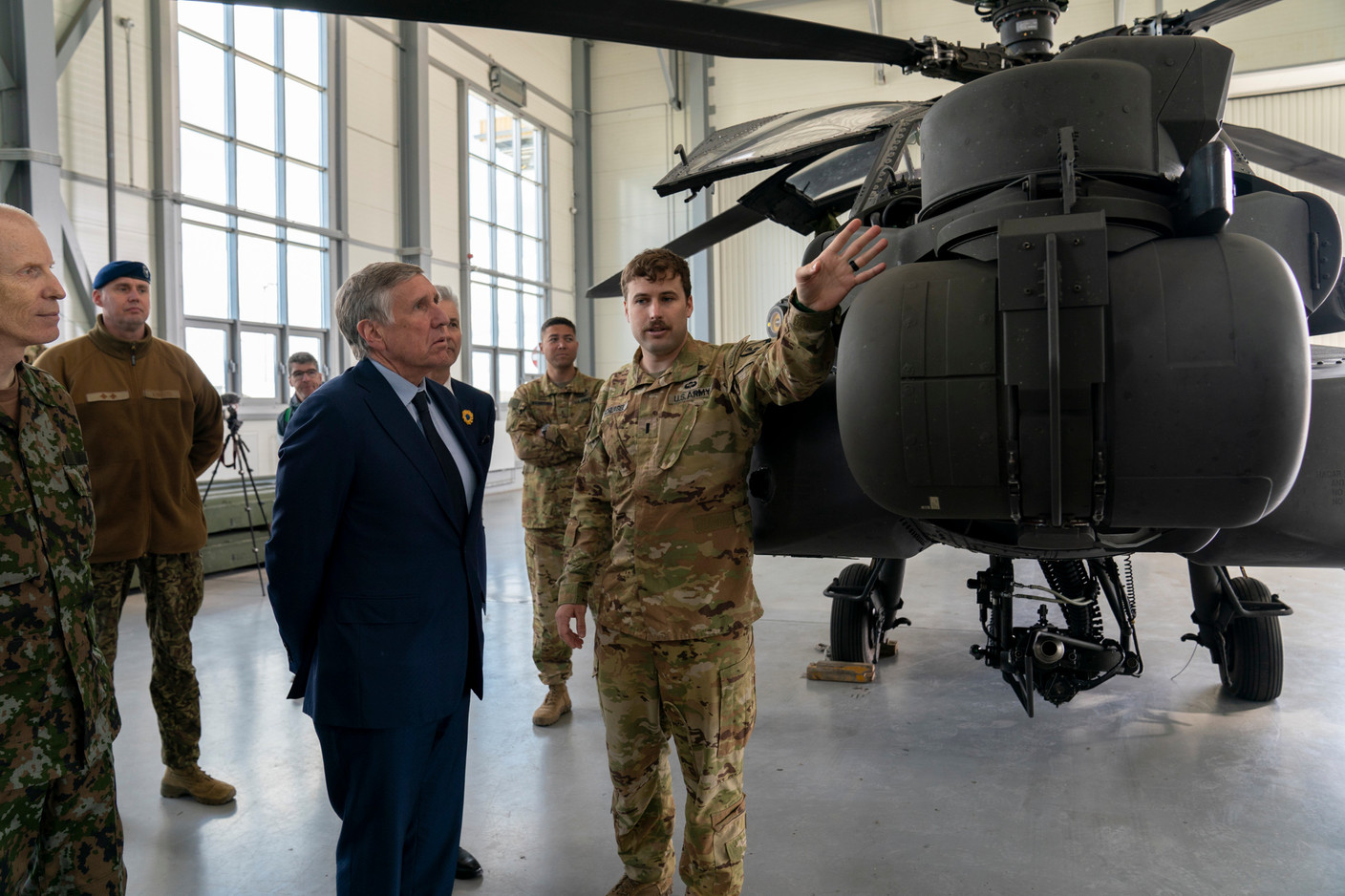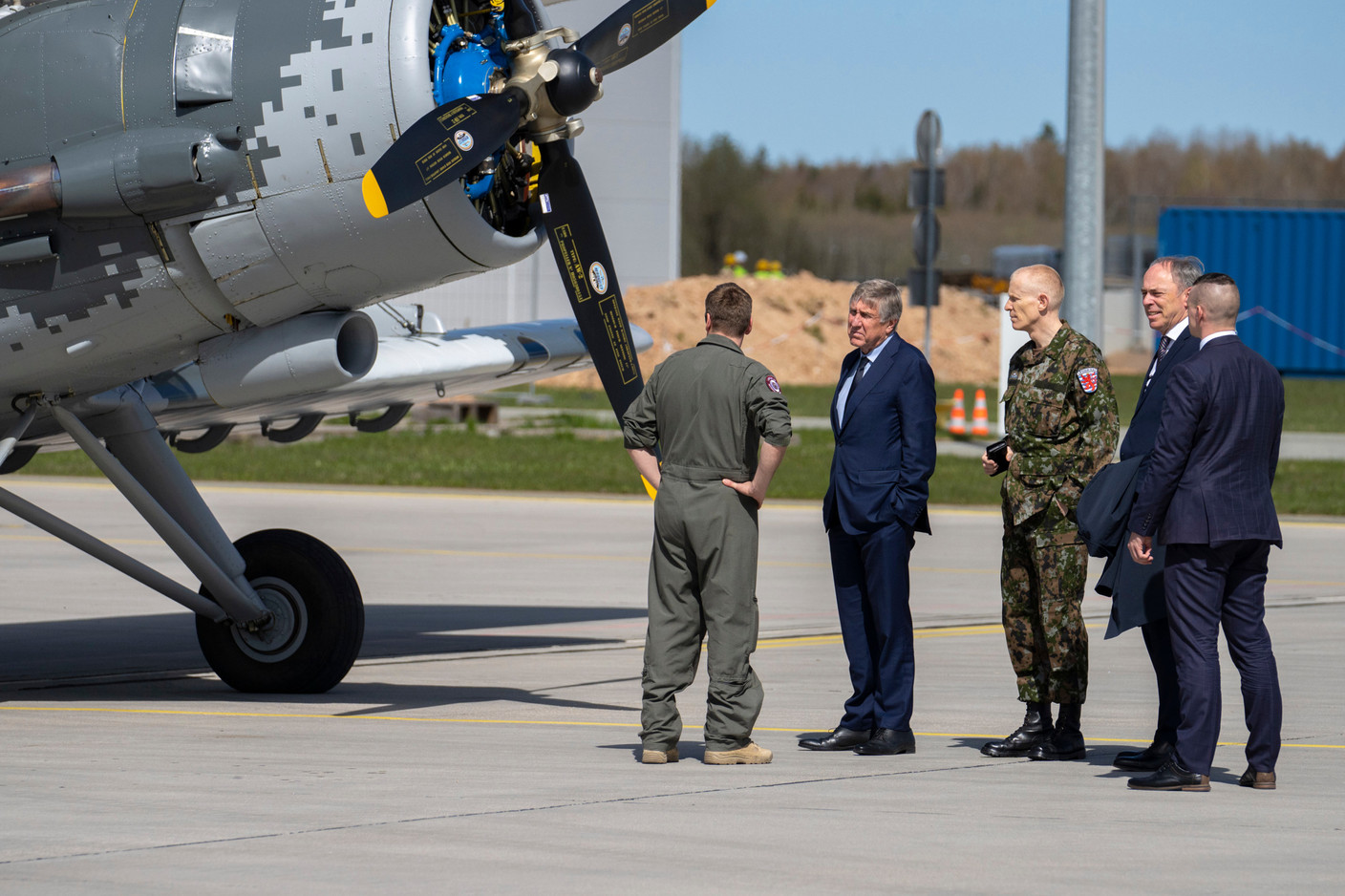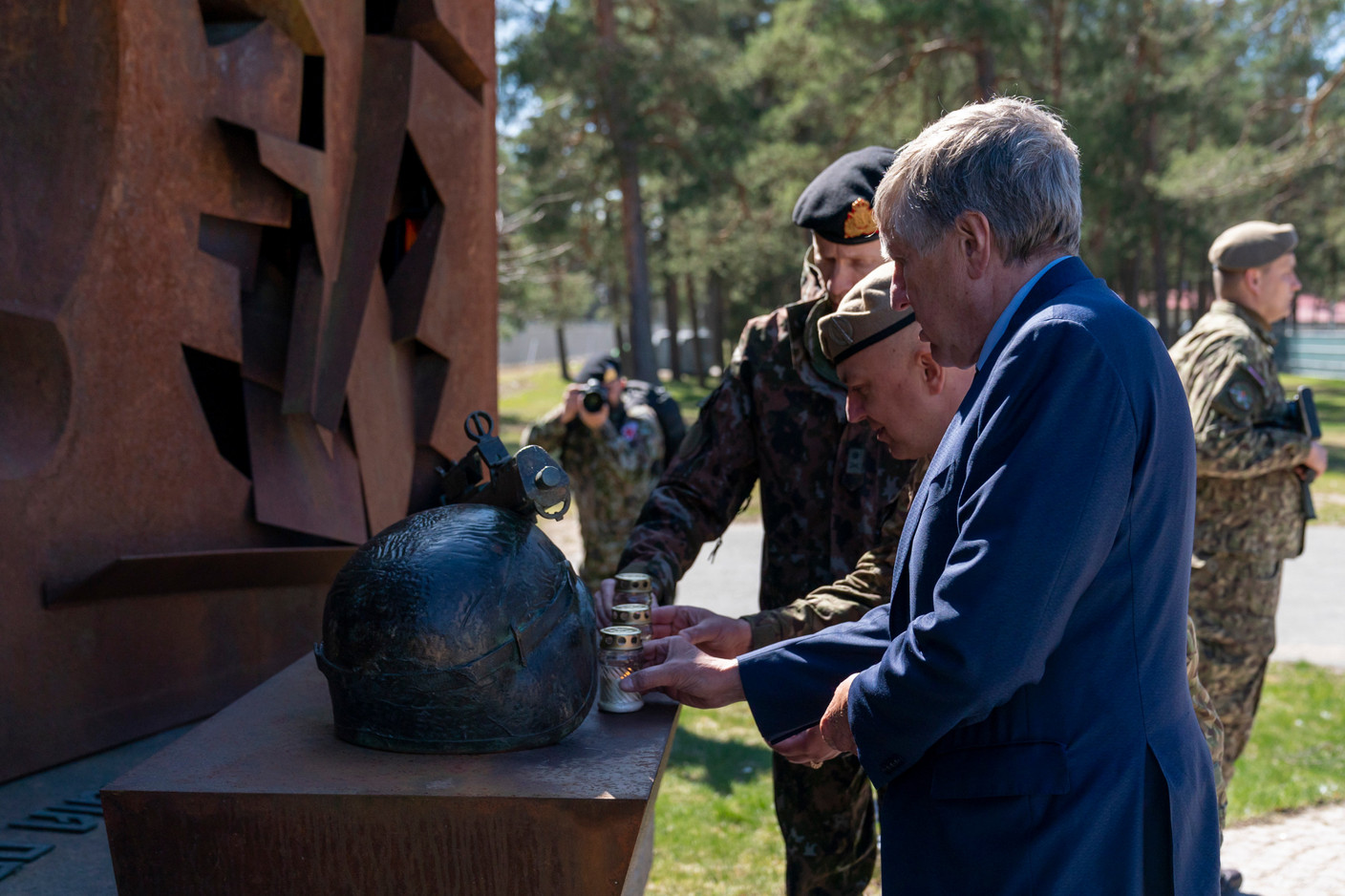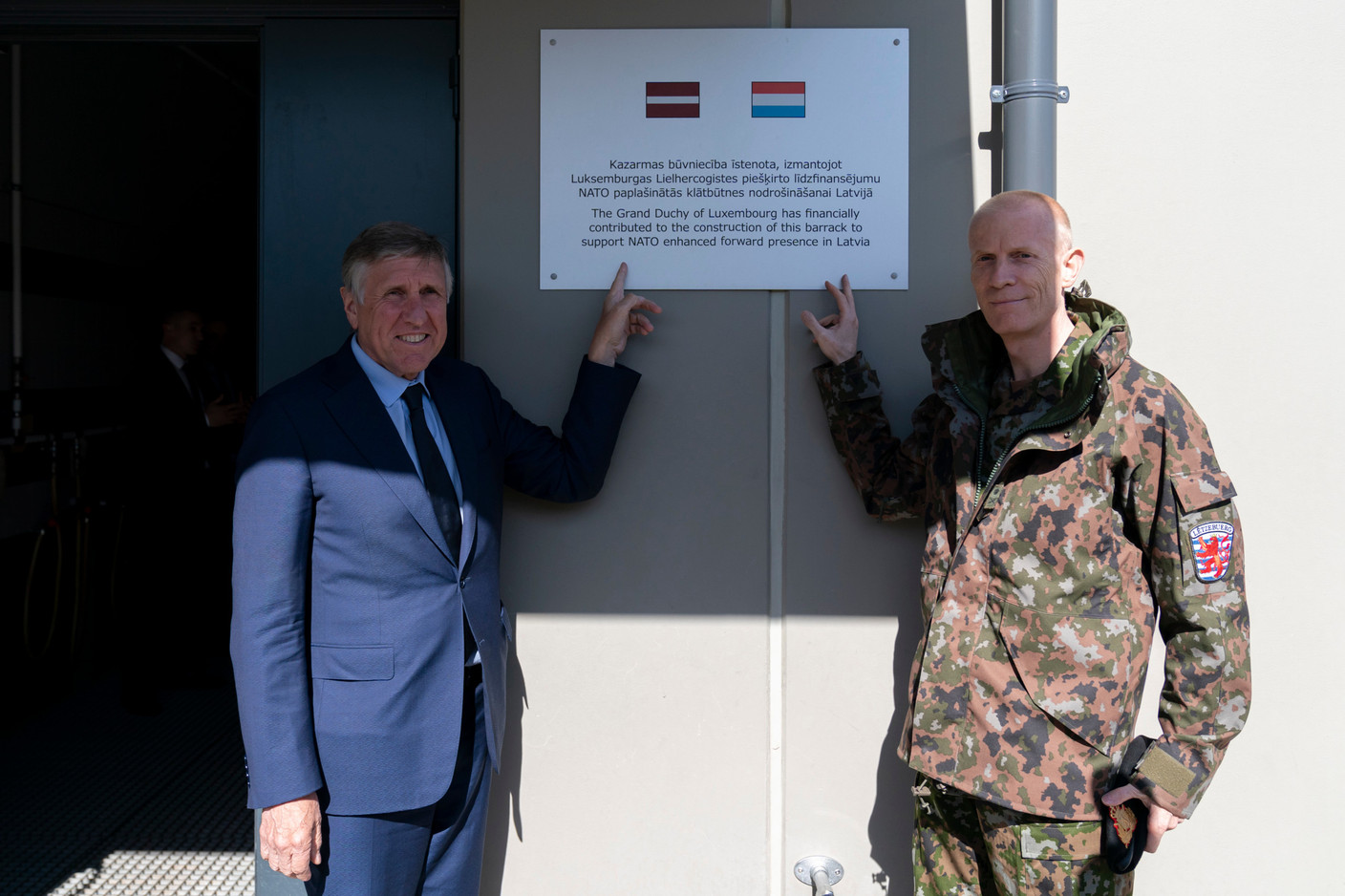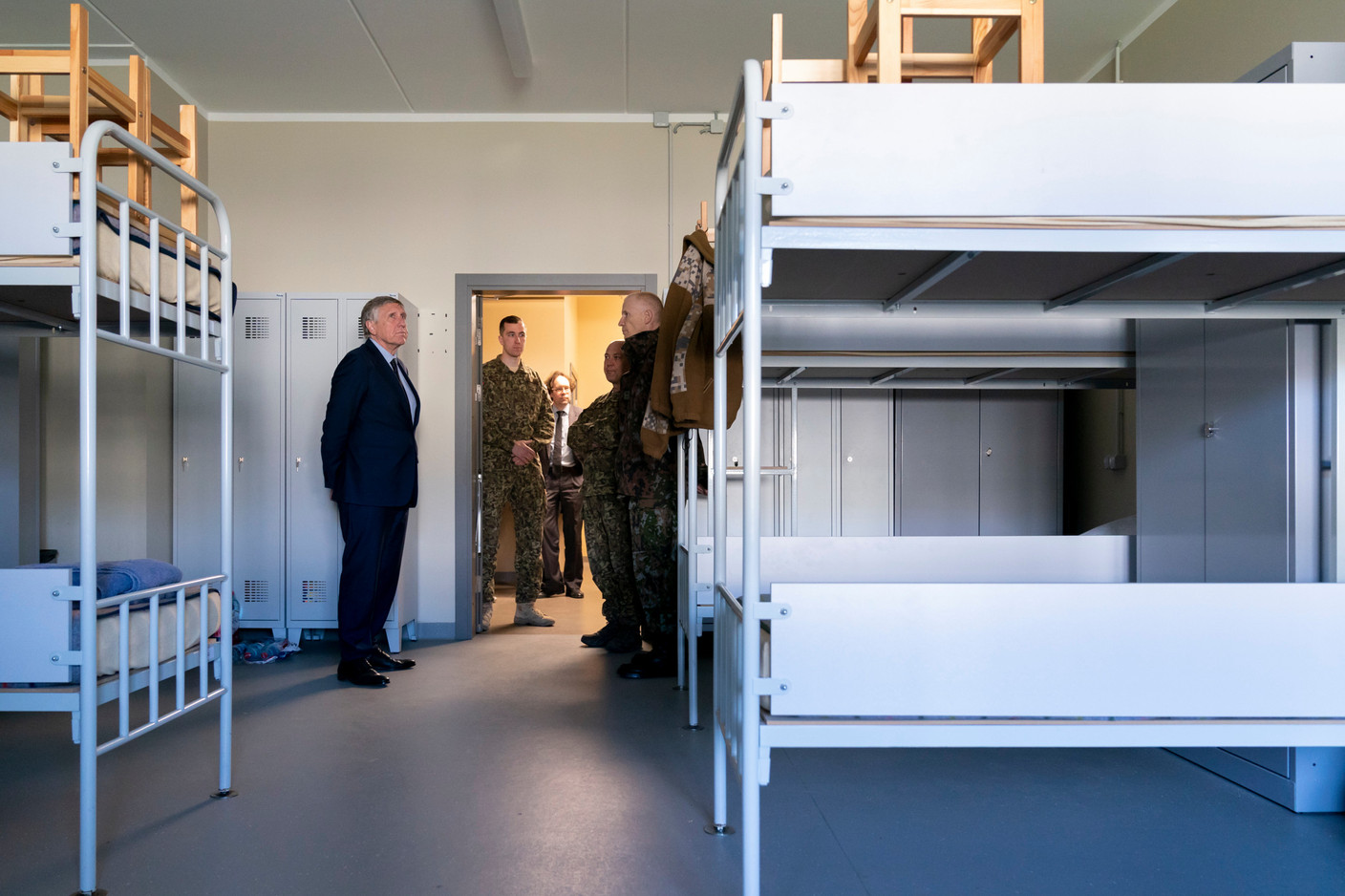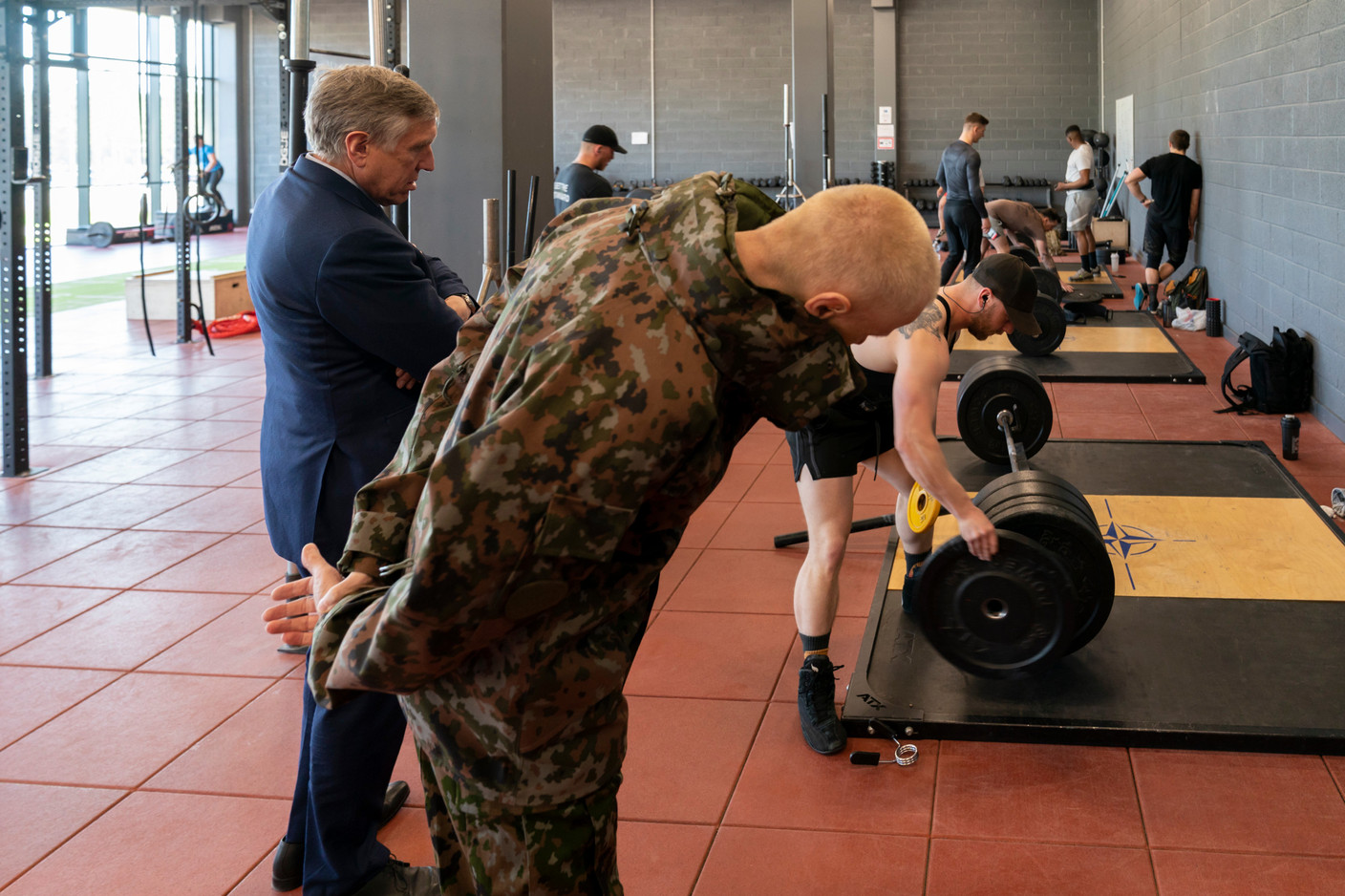The Lielvārde military air base is surrounded by forest and barbed wire, some 50 kilometres south-east of Riga, Latvia, in the Vidzeme region.
The road leading to the runway is lined with khaki and beige trucks. Tents, containers and buildings sit side by side with military aircraft. Others are parked on the vast runway. The roar of their engines deafens the birdsong for a moment, the propellers leave a cloud of dust behind them.
Luxembourg’s minister of defence and deputy prime minister, François Bausch (déi Gréng), accompanied by his Latvian counterpart, Artis Pabriks, visited the site on Tuesday 3 May, as part of his working visit to the Baltic states. Luxembourg has invested €6.9 million to clean up the soil at the Lielvārde base and a second one in Latvia.
Defence in solidarity
“It is important to collaborate with countries of similar size to Luxembourg,” Bausch explains. The first agreement, which covered 2021-2023, set Luxembourg’s funding at €1.2 million. A second agreement, signed last October, increased it by €5.7 million and extended the deal up to 2024. This represents a “large part” of the soil remediation budget shared with Latvia. This is part of Luxembourg's defence spending, which amounts to €464 million for 2022, or 0.6% of GDP.
Pabriks said he was “grateful for the cooperation” with Luxembourg, mentioning the “enormous amount of work to repair the damage done to nature”. He hopes the strategy will continue along with the aim being to “restore buildings left in a bad state since the departure of the Soviet army” from the base in the 1990s. Bausch mentioned future collaboration in the field of “satellite observation”.
Initially planned for last October, the visit was postponed because of covid. But the minister said that the current timing highlighted the importance of visiting Russia’s neighbour in the midst of the war in Ukraine. He hopes that, like Luxembourg “situated between France and Germany”, Latvia might soon act as a “peacemaker” between Russia and Ukraine.
Barracks and sanitation
“For the moment, we are safe,” said the Latvian defence minister. He reckons the end of the war will depend on Ukrainian victory. He trusts Nato to come to his aid if the situation changes.
Nato’s enhanced forward presence, in Estonia, Latvia, Lithuania and Poland was established in 2017 and after the illegal annexation of Crimea by Russia to send a “clear message: any attack on one ally will be considered an attack on the whole alliance”. New battle groups have been set up in Bulgaria, Hungary, Romania and Slovakia since the war in Ukraine began.
Soldiers from Canada, Albania, the Czech Republic, Iceland, Italy, Montenegro, Poland, Slovakia, Slovenia and Spain are present in Latvia. Luxembourgers (six since the war in Ukraine, four before) are part of the group stationed in Lithuania. Bausch will visit them on Wednesday.
The grand duchy has also financed the construction of a barracks for 450 soldiers on the Ādaži base to accommodate a Nato enhanced forward presence battle group. This project has a budget of €3 million . Bausch visited the barracks and the surrounding military site which houses a canteen, storage buildings, petrol station and a sports centre. The whole thing looks like a gigantic campus, with green spaces surrounded by pine trees.
This article was originally published in and has been translated and edited by Delano
